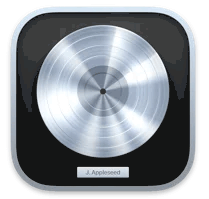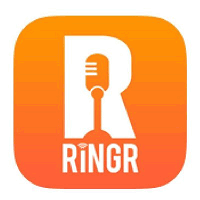Description

Logic Pro X

Ringr
Comprehensive Overview: Logic Pro X vs Ringr
Certainly! Let's break down the comprehensive overview of Logic Pro X and Ringr.
Logic Pro X
a) Primary Functions and Target Markets:
-
Primary Functions:
- Logic Pro X is a digital audio workstation (DAW) software designed for professional music production. It offers a comprehensive suite of tools for recording, editing, and mixing music. Key features include multi-track recording, MIDI support, virtual instruments, audio effects, and a large sound library.
- It’s designed for tasks such as composing, scoring, and producing music across various genres. Its extensive toolkit supports complex audio manipulation and high-quality production.
-
Target Markets:
- Professional musicians, music producers, and sound engineers who require a robust and feature-rich DAW.
- Music educators and students who are learning music production, especially those on Mac systems.
- Composers working in the film, TV, and video game industries.
b) Market Share and User Base:
-
Market Share: Logic Pro X is one of the leading DAWs in the music production industry, especially favored by users of Apple products due to its exclusivity to macOS. Its market share is significant but typically competes closely with other popular DAWs like Ableton Live, FL Studio, and Pro Tools.
-
User Base: The user base for Logic Pro X is largely comprised of Apple users, including both hobbyists and professionals in the music industry who prefer its seamless integration with macOS devices.
c) Key Differentiating Factors:
- Exclusive to macOS, offering tight integration with other Apple products and services.
- One-time purchase model rather than a subscription, making it cost-effective in the long term.
- A comprehensive stock library and intuitive interface that appeal to both beginners and professionals.
- Strong emphasis on MIDI editing and virtual instruments, which are highly acclaimed by music composers.
Ringr
a) Primary Functions and Target Markets:
-
Primary Functions:
- Ringr is not a music production tool, but rather a remote podcasting and interview recording service. It is designed to simplify the process of recording high-quality audio from different locations by using a mobile device or computer.
- Ringr enables seamless remote interviews by syncing high-quality audio tracks from each participant.
-
Target Markets:
- Podcasters and interviewers looking for an easy way to record remote interviews with clear audio quality.
- Content creators and journalists who frequently conduct remote interviews.
- Businesses looking for solutions to record remote meetings with clarity.
b) Market Share and User Base:
-
Market Share: While not as prevalent as software giants in the DAW industry, Ringr has carved out a niche in the podcasting and remote recording market. It faces competition from similar services like Zencastr and SquadCast.
-
User Base: Primarily consists of podcasters, journalists, and remote content creators who value convenience and high-quality remote audio recording.
c) Key Differentiating Factors:
- Focuses mainly on ease of use and accessibility for remote recording, contrasting with Logic Pro X's focus on intricate music production.
- Offers cross-platform compatibility across various devices, unlike Logic Pro X, which is Mac-exclusive.
- Prioritizes synchronized high-quality recording remotely without requiring technical setup.
Comparison and Conclusion
Logic Pro X and Ringr serve very different purposes and markets. Logic Pro X appeals to the professional music production crowd seeking a full-fledged DAW on macOS, while Ringr targets podcasters and content creators needing efficient remote recording solutions. Logic Pro X's strengths lie in music production capabilities, whereas Ringr distinguishes itself with simplified remote recording. Their market share and user demographics reflect these divergent objectives, with Logic Pro X being significant in the music production world and Ringr notable among podcasters and interviewers.
Contact Info

Year founded :
Not Available
Not Available
Not Available
Not Available
Not Available

Year founded :
Not Available
Not Available
Not Available
India
Not Available
Feature Similarity Breakdown: Logic Pro X, Ringr
Logic Pro X and Ringr are both audio-focused applications but serve different primary purposes, which leads to both similarities and contrasts in their features and user interfaces. Below is a breakdown of their feature similarities and differences:
a) Core Features in Common
-
Audio Recording: Both Logic Pro X and Ringr offer audio recording capabilities. Logic Pro X is designed primarily as a digital audio workstation (DAW) for music production, offering multi-track recording. Ringr, on the other hand, is designed for recording high-quality audio calls, often used in podcasting and interviews, providing ease in capturing remote dialogue.
-
Editing Tools: Both applications provide tools for editing audio. Logic Pro X offers a full suite of editing capabilities including cutting, trimming, crossfades, and more, aimed at music producers. Ringr offers simpler editing options suitable for cleaning up conversations.
-
Export and Sharing: You can export audio files in various formats both in Logic Pro X and Ringr. Both allow for sharing recordings, though Logic Pro X offers more professional and varied export options for music tracks.
b) User Interface Comparison
-
Logic Pro X: The interface of Logic Pro X is advanced and complex, aimed at music professionals and serious hobbyists. It includes a timeline, tracks, a mixer, and numerous panels for MIDI editing, effects, and plug-ins. It's designed to handle complex projects with multiple tracks and layers.
-
Ringr: Ringr has a simpler and more straightforward interface. It's more like a communications tool with focus on ease of use for recording conversations, rather than detailed music production. It prioritizes simplicity and efficiency in capturing and processing voice recordings.
c) Unique Features
-
Logic Pro X Unique Features:
- Comprehensive Instrument Library: Logic Pro X has a vast library of virtual instruments and effects, enabling music creation from start to finish.
- MIDI Support and Advanced Editing: It excels with its detailed MIDI editing capabilities, crucial for musicians and producers.
- Mixing and Mastering Tools: Offers high-end mixing and mastering tools suited for professional music production.
- Live Loops and Sampler Tools: Innovative tools for creating music in a live environment, often used in electronic music.
-
Ringr Unique Features:
- Cloud-Based Recording: Allows for recording interviews or podcasts from anywhere, with seamless cloud integration for storing and accessing recordings.
- Call Scheduling and Invitations: Offers tools for setting up calls, scheduling recordings, and inviting guests, which are efficient for remote interviews or podcast sessions.
- Cross-Platform Functionality: Can be easily accessed and used on different devices (phones, web browsers) to record conversations remotely.
In essence, while both Logic Pro X and Ringr deal with audio, their core functionalities cater to different segments—professional music production versus conversation recording for podcasts and interviews, influencing their feature sets and usability.
Features

Not Available

Not Available
Best Fit Use Cases: Logic Pro X, Ringr
Logic Pro X and Ringr are two distinct software tools tailored for different audio-related applications. Here's an overview of their best fit use cases, targeted industries, and company sizes:
a) Logic Pro X
Type of Businesses or Projects:
-
Music Production Studios:
- Professional Music Producers and Composers: Logic Pro X is known for its powerful suite of music creation tools, making it ideal for composing, recording, editing, and mixing music.
- Independent Artists and Bands: It offers a vast library of sounds and effects, appealing to artists looking for a versatile and comprehensive DAW (Digital Audio Workstation).
-
Educational Institutions:
- Music and Audio Production Courses: Schools and universities often use Logic Pro X in their curricula due to its industry-standard features, helping students learn professional music production techniques.
-
Film and Game Soundtrack Producers:
- Logic Pro X is equipped with advanced features for scoring films and video games, including support for surround sound and a wide range of instrument and sound effect libraries.
Industry Verticals and Company Sizes:
- Media and Entertainment: Logic Pro X caters to mid-sized recording studios and large-scale production houses that require robust, feature-rich audio editing capabilities.
- Education: It's suitable for universities or conservatories offering music production programs.
b) Ringr
Scenarios for Preferred Use:
-
Remote Podcasting and Interviews:
- Podcasters: Ringr is tailored for recording high-quality audio remotely, making it ideal for podcasters conducting interviews with guests around the world.
-
Business Communication:
- Corporate Interviews and Meetings: Businesses can use Ringr for recording remote interviews and meetings, ensuring clear and professional audio quality for transcription or broadcasting.
-
Journalists and Reporters:
- Journalists conducting remote interviews can leverage Ringr's capabilities to ensure high-fidelity captures, regardless of geographical constraints.
Industry Verticals and Company Sizes:
- Media and Publishing: Ringr is particularly popular among small to medium-sized media companies and independent podcasters.
- Corporate: Suitable for small to large enterprises that prioritize high-quality audio recording for remote communications or content creation.
Differentiation in Industry Verticals and Company Sizes:
-
Logic Pro X is more fitting for industries focused on content creation that demands intensive audio production capabilities. This includes music, film, and education sectors where detailed audio processing and a variety of tools are necessary.
-
Ringr addresses the needs of industries where remote communication and audio clarity are crucial. This includes media outlets, individual podcasters, and businesses needing reliable remote recording solutions.
In summary, while Logic Pro X excels in environments requiring comprehensive music and audio production capabilities, Ringr shines in scenarios needing high-quality remote audio recording with simplicity and ease of use. Each software caters to specific needs, reflecting the priorities of their respective user bases.
Pricing

Pricing Not Available

Pricing Not Available
Metrics History
Metrics History
Comparing undefined across companies
Conclusion & Final Verdict: Logic Pro X vs Ringr
Conclusion and Final Verdict
When comparing Logic Pro X and Ringr, it is essential to consider their primary purposes and the specific needs of their users. Logic Pro X is a comprehensive digital audio workstation (DAW) widely used by music producers, composers, and sound engineers. It offers a rich suite of features for music production, audio editing, and mixing. On the other hand, Ringr is a service focused on providing high-quality remote audio recording, primarily used for podcasts, interviews, and remote collaborations.
a) Considering all factors, which product offers the best overall value?
Logic Pro X offers the best overall value for anyone involved in music production or sound design. It provides a robust set of tools for a one-time purchase price, offering unparalleled depth and flexibility for professionals in the audio industry. With features like virtual instruments, sound libraries, and advanced audio editing capabilities, Logic Pro X is a powerhouse for creating music and audio content.
b) Pros and Cons of Choosing Each Product
Logic Pro X
-
Pros:
- Comprehensive suite of tools for music production and sound design
- High-quality built-in virtual instruments and effects
- Strong community support and extensive tutorials
- One-time purchase cost, no subscription necessary
-
Cons:
- Requires a macOS system, limiting its accessibility to Mac users
- Steeper learning curve, especially for beginners
- Not tailored for remote podcasting or interviews
Ringr
-
Pros:
- Designed specifically for remote recording with easy setup
- High-quality audio recording suitable for podcasts and interviews
- Cross-platform accessibility for both mobile and desktop use
- Simplicity and user-friendliness
-
Cons:
- Subscription-based model can be more costly over time
- Limited to audio capturing, lacking in advanced editing tools
- Not suitable for full-fledged music production
c) Specific Recommendations for Users Deciding Between Logic Pro X vs Ringr
-
For Musicians and Sound Designers: If your primary goal is to compose, produce, and edit music or soundtracks, Logic Pro X is the clear choice. Its extensive features and tools will meet the demands of any complex project and provide a professional level of control over your work.
-
For Podcasters and Remote Collaborators: Ringr is the better option if your focus is on recording high-quality audio remotely. Its ease of use and platform compatibility make it an ideal choice for podcasters and journalists needing reliable recording solutions without the complexity of full DAWs.
Ultimately, choosing between Logic Pro X and Ringr comes down to your specific needs and the type of audio work you're engaging in. Evaluate the primary purpose of your projects, the equipment you have, and your budget to make the most informed decision.
Add to compare
Add similar companies




